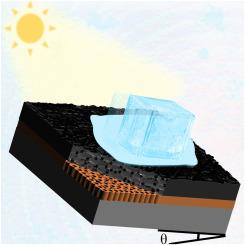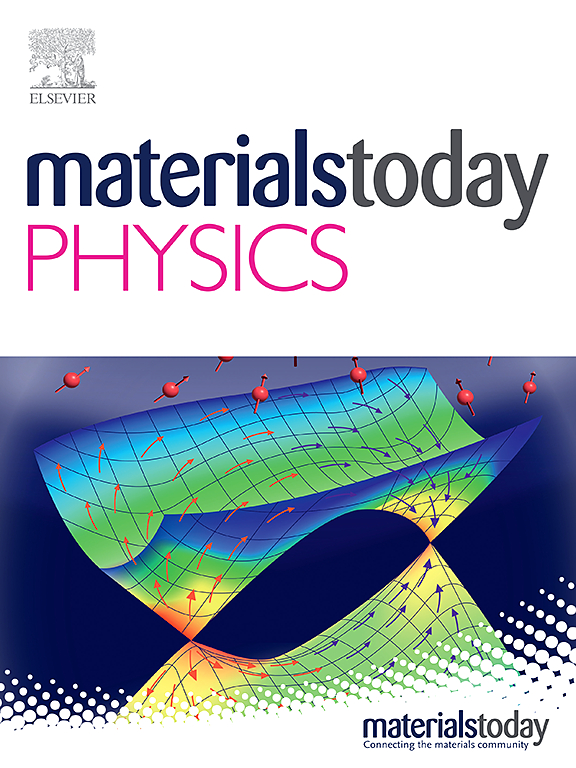等离子体光热超疏水表面纳米管绝热层在弱光照下的防冰防霜研究
IF 9.7
2区 材料科学
Q1 MATERIALS SCIENCE, MULTIDISCIPLINARY
引用次数: 0
摘要
冰和霜的积累对交通和能源基础设施(如飞机、船舶和风力涡轮机)的安全和有效运行构成了重大威胁。虽然光热超疏水表面已经成为一种很有前途的防冰和除冰解决方案,但金属基板的高导热性导致大量热损失,限制了光热表面的热效率。此外,硬脆的微纳米结构是限制超疏水表面实际应用的重要障碍。本文采用柔性聚偏氟乙烯(PVDF)稳定刚性等离子体氮化钛(TiN)颗粒,然后通过静电纺丝在绝缘二氧化钛纳米管层表面构建含有纤维和结的微六角形网络结构。该光热超疏水层在1个太阳照射下,由于高太阳吸收率、等离子体共振和增强的绝热性,温度提高了75.3°C。表面表现出优异的超疏水性,即使在较低的光照(0.35太阳)下也具有优异的防结冰和防霜性能。在-23°C的温度下,表面保持无霜长达9小时,可以在300秒内融化冰。这种设计为交通运输、能源系统和其他关键基础设施的应用提供了巨大的潜力。本文章由计算机程序翻译,如有差异,请以英文原文为准。


Plasmonic photothermal superhydrophobic surface with nanotubes thermal insulating blanket for anti-icing and anti-frosting under weak light illumination
Accumulation of ice and frost poses a substantial threat to the safe and efficient operation of transportation and energy infrastructures, such as aircraft, vessels, and wind turbines. While photothermal superhydrophobic surfaces have emerged as a promising solution for anti- and de-icing, the high thermal conductivity of metal substrates leads to large heat losses that limits the thermal efficiency of photothermal surfaces. In addition, the hard and brittle micro-nanostructure is an important obstacle limiting the practical application of superhydrophobic surfaces. Herein, the flexible poly(vinylidene fluoride) (PVDF) is employed to stabilize the rigid plasmonic titanium nitride (TiN) particles, and then a micro-hexagonal network structure containing fibers and knots is constructed on the surface of insulated titania nanotube layer by electrospinning. This photothermal superhydrophobic layer achieves a remarkable temperature increase of 75.3 °C under 1 Sun illumination, driven by high solar absorption, plasmon resonance, and enhanced thermal insulation. The surface exhibits excellent superhydrophobicity, enabling superior anti-icing and anti-frosting performance, even under reduced illumination (0.35 Sun). At −23 °C, the surface remains frost-free for up to 9 h and can melt ice within 300 s. This design offers significant potential for applications in transportation, energy systems, and other critical infrastructures.
求助全文
通过发布文献求助,成功后即可免费获取论文全文。
去求助
来源期刊

Materials Today Physics
Materials Science-General Materials Science
CiteScore
14.00
自引率
7.80%
发文量
284
审稿时长
15 days
期刊介绍:
Materials Today Physics is a multi-disciplinary journal focused on the physics of materials, encompassing both the physical properties and materials synthesis. Operating at the interface of physics and materials science, this journal covers one of the largest and most dynamic fields within physical science. The forefront research in materials physics is driving advancements in new materials, uncovering new physics, and fostering novel applications at an unprecedented pace.
 求助内容:
求助内容: 应助结果提醒方式:
应助结果提醒方式:


